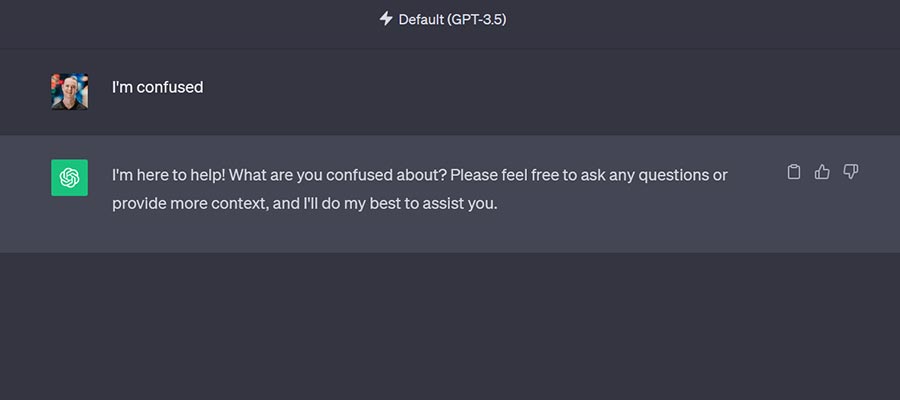Artificial intelligence (AI) is just starting to impact society. But that hasn’t stopped people from making bold proclamations.
I’m particularly fond of the Doomsday scenarios. You know, the very darkest of sci-fi fantasies. The possibility of working for a machine sounds modern. I wonder how well it pays?
Then there’s the idea that we must “learn” AI. The term “prompt engineer” has been thrown around. This one sounds perfect for a grumpy designer! It also seems like a job with a short shelf life.
We used to write code to direct a computer. But now we tell it what to do. It’s less work for more money. Who wouldn’t want this job?
But seriously. What should web designers learn about AI? Do we need to learn anything at all? I have a few unscientific ideas. Just take them with a grain of salt. I haven’t run any of this by ChatGPT yet.
AI Prompts Test Your Communication Skills
The idea of a career in prompt engineering sounds strange. But I admit that the job requires some skill. You might have issues if you’re not a gifted communicator.
Generative code seems like an area of relevance. Large language models (LLMs) like ChatGTP and Bard can accept vague instructions. That will likely produce some basic code. It serves as a foundation to build upon.
But complex code needs clear, detailed instructions. Not everyone possesses this ability.
Just think of the clients who have trouble explaining a design feature. Do we expect these people to generate the next great WordPress plugin?
The results may suffer if a prompt is too light or wordy. LLMs will likely improve. But there will still be hurdles for those who struggle with clear communication.
Your primary language may also be a barrier. What if a model isn’t well-versed in your language? That’s going to make prompts more difficult.
Therefore, it’s wise to brush up on your written communication skills. They’ll come in handy.

Using APIs To Build AI Apps
Several AI tools either have or will release an application programming interface (API). The concept should be familiar to web designers. The likes of Google and social media providers have similar offerings.
You can tap into the power of ChatGPT to build an application. This is useful if your project needs one-off functionality. Or if you have a killer idea that will make billions. That may be far-fetched. It seems like most people are using it to generate text thus far.
Learning one of these APIs won’t apply to everybody. It’s more likely that we’ll use apps created by others. For instance, a WordPress plugin that adds a chatbot to your site.
Understanding how an API works is still valuable, though. And there’s a market for niche applications. Perhaps the real money will be in helping organizations implement AI.

When To Use AI Tools
It’s tempting to use AI for just about every task. Just like your mother told you, the machine knows best.
But the reality is that AI isn’t good at everything. It struggles with accuracy. It even hallucinates occasionally.
Learning a tool’s strengths and weaknesses is vital. The facts, figures, and code generated by AI may look great. But how do you know for sure?
Practicing blind faith in these tools is not recommended. If accuracy matters, take the time to double-check the results. You might want to regenerate a response as well. AI tools will often provide multiple answers for the same prompt.
Thus, treat AI like that shady friend you had in high school. Feel free to hang out together. But don’t rely on it for anything too important. It will only get you into trouble.

Learn How To Get What You Want From AI
Like any tool, AI has a learning curve. But there’s no need to study every aspect. It’s more important to learn how to produce the desired results.
Your communication skills are vital. And tools that understand your instructions also play a role. Your success depends on both items.
What if you struggle to write AI prompts? There are a lot of guides popping up that can help.
And you can do more than follow their examples. Pay close attention to the way each prompt is worded. Experiment with similar language in your virtual conversations.
It also helps to be a bit grumpy skeptical. This will help you better understand the limitations of these tools. They don’t “know” everything. And, like the people they are supposedly replacing, they make mistakes.
The machines aren’t taking over yet. But it’s worth learning how to take advantage of them. You may end up as the more powerful being.



